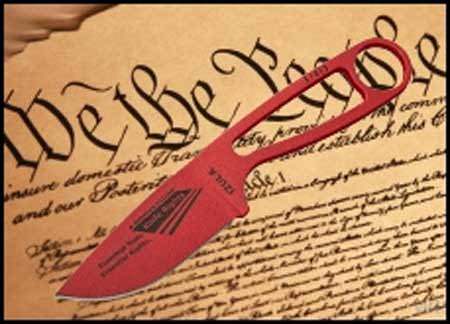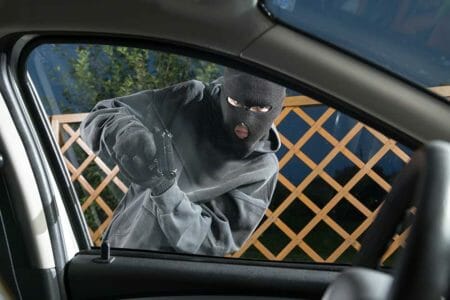Niagara County Legislature Unanimously Opposes Microstamping Bill in NYS Legislature

Niagara County, NY –-(Ammoland.com)- Niagara County lawmakers unanimously opposed an extreme bill passed by the New York State Assembly that would require gun-buyers in New York state to purchase guns the included costly technology that had been repeatedly proven unreliable at best.
County lawmakers expressed disgust with grandstanding by the State Assembly’s leadership, which every year passes a raft of anti-Second Amendment bills, most of which are stopped cold in the Senate. The Assembly’s passage of a bizarre “micro-stamping” bill long the darling of extreme gun-control organizations caused a pair of lawmakers representing four of Niagara County’s rural towns to lead an effort to condemn the Assembly’s actions and call on the Senate to block its passage.
Micro-stamping would, in theory, imprint a unique identification number on cartridges ejected by semiautomatic pistols. Unfortunately for proponents of the concept, it’s been repeatedly found to work poorly at best even being proven ineffective during an involved 2006 study at the University of California-Davis. With even a University of California school opposing mandating the technology, Niagara County lawmakers were left scratching their heads about why the Assembly is in such a hurry to require the unproven and costly technology in New York.
For that reason, Tuesday night county legislators were unanimous in admonishing the Assembly’s leadership for passing the legislation and asking the Senate to once again act as a road block against extreme laws, often authored by downstate Assemblymen.
“Again, it seems the assault has started with the anti-Second Amendment rights legislation originating in the Assembly,” Legislator John Syracuse, R-Newfane, told his colleagues. “What we have here is this micro-stamping I hesitate to use the word ‘technology’ that has repeatedly failed in laboratory tests. And now the Assembly wants to require it.”
Syracuse noted that chief among the problems with micro-stamping aside from the fact that a similar experiment at a Suffolk County, N.Y., crime lab had found that virtually all of the stamped characters were unreadable and that a criminal with a metal file could render the technology impotent.
“They’re easily scoured or tampered with,” Syracuse said. “All this does is erode the rights of law-abiding citizens to purchase guns. And we won’t tolerate this back-door effort at gun control.”
Syracuse was joined in sponsoring the measure blasting the Assembly by Legislator Michael A. Hill, R-Middleport, a parole officer who was concerned about efforts by criminals to misuse micro-stamped ammunition casings fired by law-abiding firearms owners particularly his fellow law-enforcement officers.
“The problem with the technology is that there may be an opportunity that, if this actually worked, people could become victims of false accusations,” Hill said. “As a law-enforcement officer myself, I go to the range twice a year to qualify, and we use quite a few cartridges, and they’re all over the range. We do our best to pick them up. But we don’t get them all. And these ranges would be a popular place for criminals to go to pick up casings to scatter around a crime scene to add to confusion.”
Hill’s specific objection has been repeatedly cited by the National Rifle Association as well.
Hill, who as a law-enforcement officer is quite knowledgeable about firearms, noted a second failing of micro-stamping: it only is applicable to semiautomatic pistols. Micro-stamping would be ineffective on revolvers, as the expended cartridges remain in the gun.
“Old West-type guns revolvers don’t even eject their rounds. If they used a gun in that category to commit a crime, they’re going to take the cartridges with them,” Hill said. “That nullifies the effectiveness of this technology.”
Further complicating things, Hill and Syracuse noted, is that the Assembly bill requires creation of a statewide database of unique bullet IDs, but fails to explain how construction, updating, and maintenance of such a costly database would be paid for.
“I know that databases cost money to create. Databases cost money to maintain,” Hill said. “The Assembly doesn’t say where that money is going to come from.”
Hill summed up the County Legislature’s opposition to the Assembly micro-stamping bill on behalf of his colleagues.
“There are just a lot of holes in it,” Hill said. “The Assembly leadership is talking about adding an expense to law-enforcement for a technology that’s not proven, and that can be scrubbed right out of a handgun. And I just think it’s another attack on our Second Amendment rights.”




